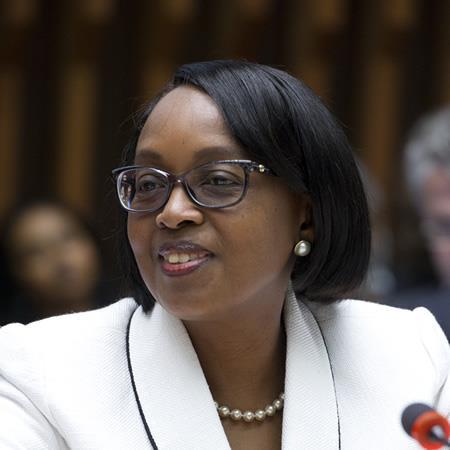The World Health Organisation (WHO) Regional Director for Africa, Dr Matshidiso Moeti, has said that an estimated 8.8 million people in the world die from cancer annually, representing almost one-sixth of total deaths.

She added however that cancer death rate is expected to double by 2030.
According to her, the WHO is ready to provide the support and guidance needed to offer quality access to cancer care for all, and ensure that no one is left behind.
“Together we can beat cancer,” she said.
Dr. Moeti made this known in her message to commemorate the World Cancer Day, held annually on February 4. This year’s World Cance Day, with the theme: “We can, I can”, as been described as an opportunity for the global community to unite in combating cancer, believed to be the second leading cause of death in the world.
According to her, 75 percent of cancer deaths in the world are recorded in low- and middle-income countries such as African Member States, partly due to late diagnosis.
She regretted that fewer than 30 percent of low-income countries have access to cancer diagnosis and treatment services.
“In 2015, approximately 35 percent of low-income countries reported the availability of public sector pathology services, relative to over 95 percent of high-income countries.”
She further stated that cancer referral systems are often unavailable, resulting in delayed access to care.
The cancer burden in Africa is projected to rise on account of the ageing population, chronic infections, unhealthy lifestyle choices and risk factors.
About a third of cancer deaths are due to preventable risk factors such as overweight, low fruit and vegetable intake, lack of physical activity, tobacco use and alcohol consumption.
Often, such choices are influenced by forces beyond the people’s control, such as the availability and more affordable cost of unhealthy foods, and the strategies employed to market tobacco and alcohol, she stressed.
According to her, when detected early, cancers are easier to treat with less expensive, invasive procedures and technologies.
In many African countries, controlling cancer requires the elimination of barriers to quality care, such as ignorance of the importance of early diagnosis and treatment.
It means introducing and implementing policy changes that guarantee the availability of cost-effective primary interventions such as the introduction of cervical cancer screening into the basic health care package and vaccination against cancer-causing viruses.
Recognising the growing threat of cancer as a public health problem, governments around the world adopted the 2017 World Health Assembly (WHA) resolution on cancer. They committed to 22 actions to help reduce the number of cancer deaths annually and improve the lives of those living with cancer.
This year marks the end of the three-year campaign “We can, I can” that urged individuals, societies and governments to take action and reduce the impact of cancer.
The drive sensitised millions, challenged governments and individuals around the world to take action, and provided a platform for cancer patients and their families to share their stories and be heard.
However, notwithstanding the gains made during the “We can, I can” campaign, the battle to curb the impact of cancer is far from over.
The key priorities identified were: promoting health; reducing risks; increasing the availability of anticancer vaccines; and ensuring that early detection, diagnosis, treatment, care and pain relief are more timely and accessible.
The resolution also lays special emphasis on cancer management for children, adolescents and young people, who have their own unique needs.
The message further readsL “The WHO is encouraging individuals to make healthy choices. Everyone can make a difference. We encourage schools, workplaces, community groups and broader society to play a role by promoting physical activity and actively opposing tobacco use, excessive alcohol consumption and unhealthy diets.
“We call on governments to implement policy changes in line with their commitments on non-communicable diseases (NCDs) and to reduce premature mortality from NCDs by 25 percent before 2025.
“Some effective strategies that could help to save lives include: high immunization coverage for hepatitis B and the human papillomavirus (HPV) within the target population; cervical cancer screening for eligible women; and early diagnosis.
“We also urge governments to improve access to people-centered cancer care; establish welfare programmes for patients and families, including psychosocial and rehabilitation services; invest in cancer surveillance; and support people undergoing treatment.
“Considering the commitments made by Member States under the Sustainable Development Goals (SDGs) to reduce premature deaths from cancers and other non-communicable diseases by one-third before 2030, the scaling up of various cancer control initiatives will contribute to the achievement of SDG-3, ensure healthy lives and promote well-being for all at all ages.”
